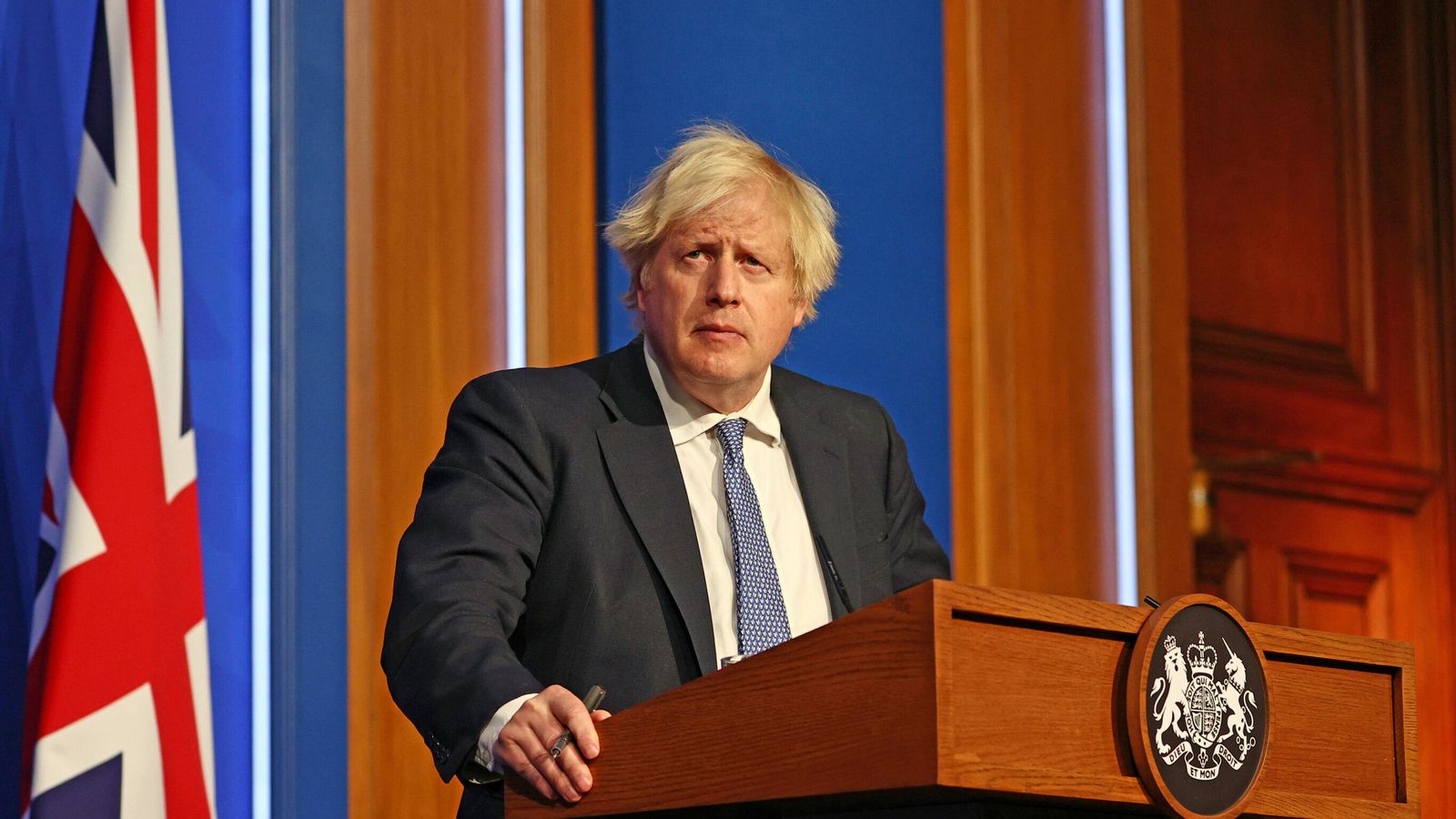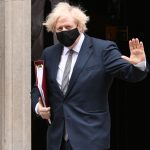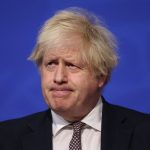Downing Street has sought to play down the significance of Boris Johnson saying there may come a point when there needs to be a “national conversation” about mandatory coronavirus vaccinations.
The prime minister made the comment at a Number 10 news conference on Wednesday.
Live COVID updates from the UK and around the world
Please use Chrome browser for a more accessible video player
Mr Johnson used the Downing Street address to confirm the government was introducing “Plan B” measures in England amid the spread of the Omicron variant of COVID-19.
During that briefing, the PM said he did not want Britain to be a “society and a culture where we force people to get vaccinated”, adding: “I don’t think that’s ever been the way we do things in this country.”
But he went on to say that if vaccines are shown to be capable of “holding” Omicron then “there is going to come a point” when “we are going to have to have a conversation about ways in which we deal with this pandemic”.
“I don’t believe we can keep going indefinitely with non-pharmaceutical interventions, restrictions on people’s way of life, just because a substantial proportion of the population still, sadly, has not got vaccinated.”
Downing Street Christmas parties: How many events are now under investigation and when were they?
Boris Johnson’s wife Carrie gives birth to ‘healthy baby girl’
Tory party fined over Downing Street flat refurb as investigation contradicts PM’s account
What is Plan B and why is the government introducing restrictions again?
Please use Chrome browser for a more accessible video player
PM making ‘broader point’
COVID vaccines have been voluntary since jabs began being rolled out by the NHS in December 2020, with some exceptions.
Frontline NHS staff and those who work in social care will have to be vaccinated from April, while COVID vaccines for care home workers are already compulsory.
Take-up among the population at large has been high, with more than 46 million people receiving two doses and over 21 million individuals having their booster or third dose.
Any move to mandate vaccines on a wide scale would prove highly controversial.
Several European countries are weighing the move, with European Commission President Ursula von der Leyen suggesting mandatory vaccines should be considered across the European Union.
Asked about the PM’s comments at a regular Westminster briefing with journalists, his spokesman said: “I think he was making a broader point on the intention to keep developing further mitigations against coronavirus and any subsequent mutations, be that polyvalent vaccinations or further therapeutics, like the antivirals that we’re rolling out.”
He added: “We recognise how challenging this is, and disheartening for the public to see us having to introduce further restrictions, albeit at a relatively limited level.
“And so we will do everything possible to continue to be at the cutting edge of this work.
“I think he was clear that he didn’t want us to have a society and culture where we forced people to get vaccinated.”
Health Secretary Sajid Javid says he has "no interest" in introducing mandatory vaccinations, "apart from in high risk settings in the NHS and social care". #KayBurley
Latest #COVID news: https://t.co/OsnaAArG48 pic.twitter.com/DovyhZ7BJm
Mandatory jabs ‘just wouldn’t work’
Health Secretary Sajid Javid dismissed the idea of mandatory jabs, telling Sky News on Thursday: “I’ve got no interest in mandatory vaccination apart from high-risk settings in the NHS and social care, which we have already set out we will legislate for.
“Other than that, if you’re talking about universal mandatory vaccination, I think ethically it is wrong.
“But also at a very practical level it just wouldn’t work, being vaccinated has to be a positive decision.”






















